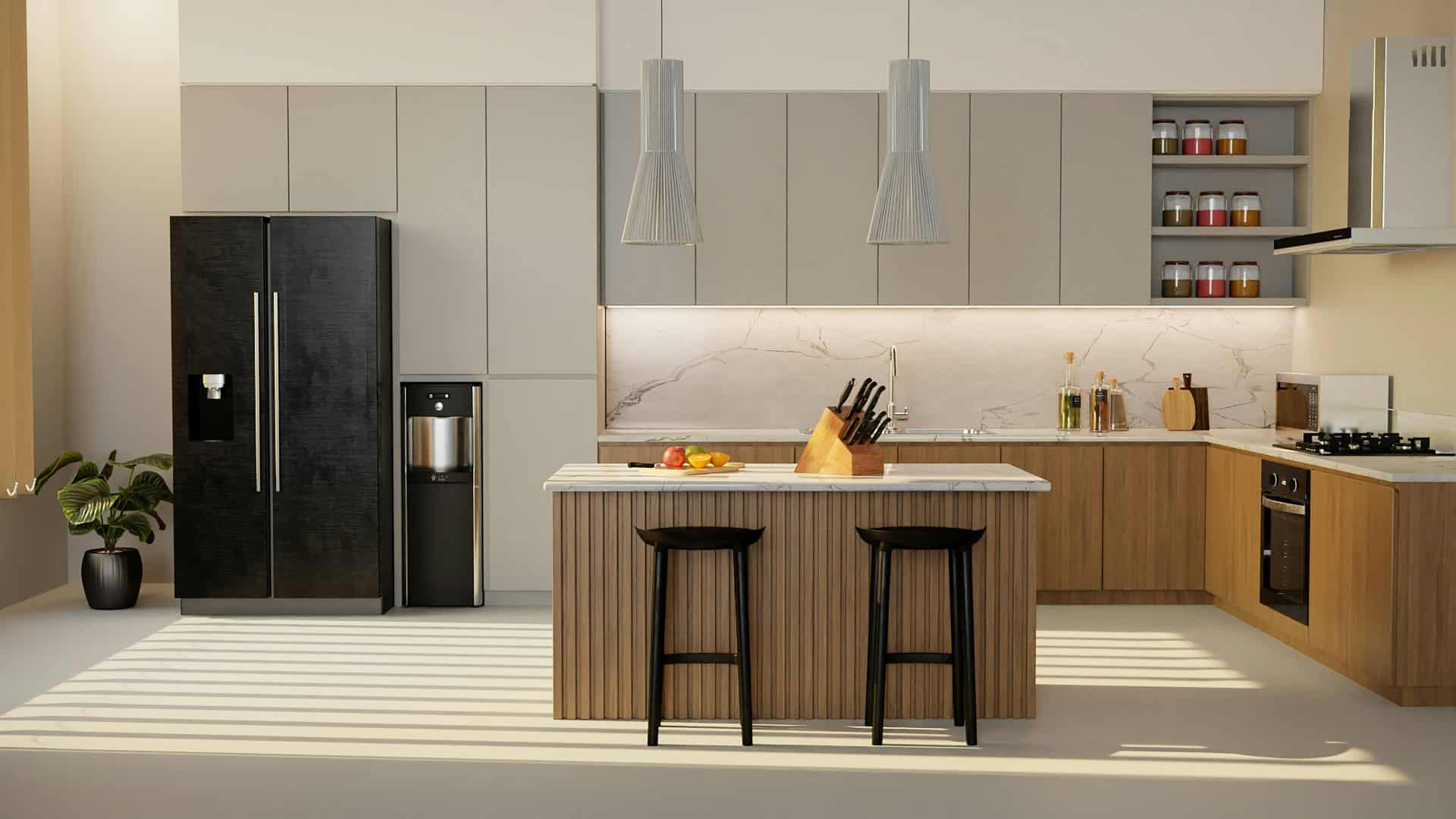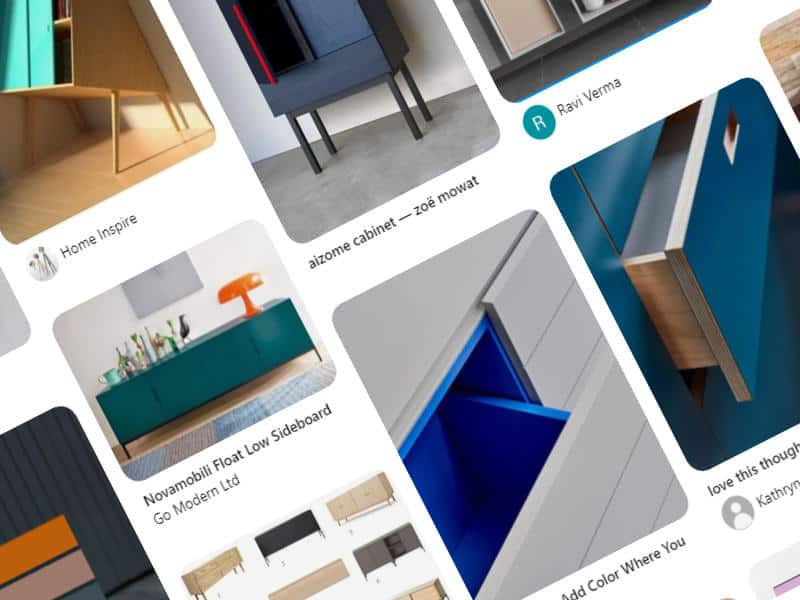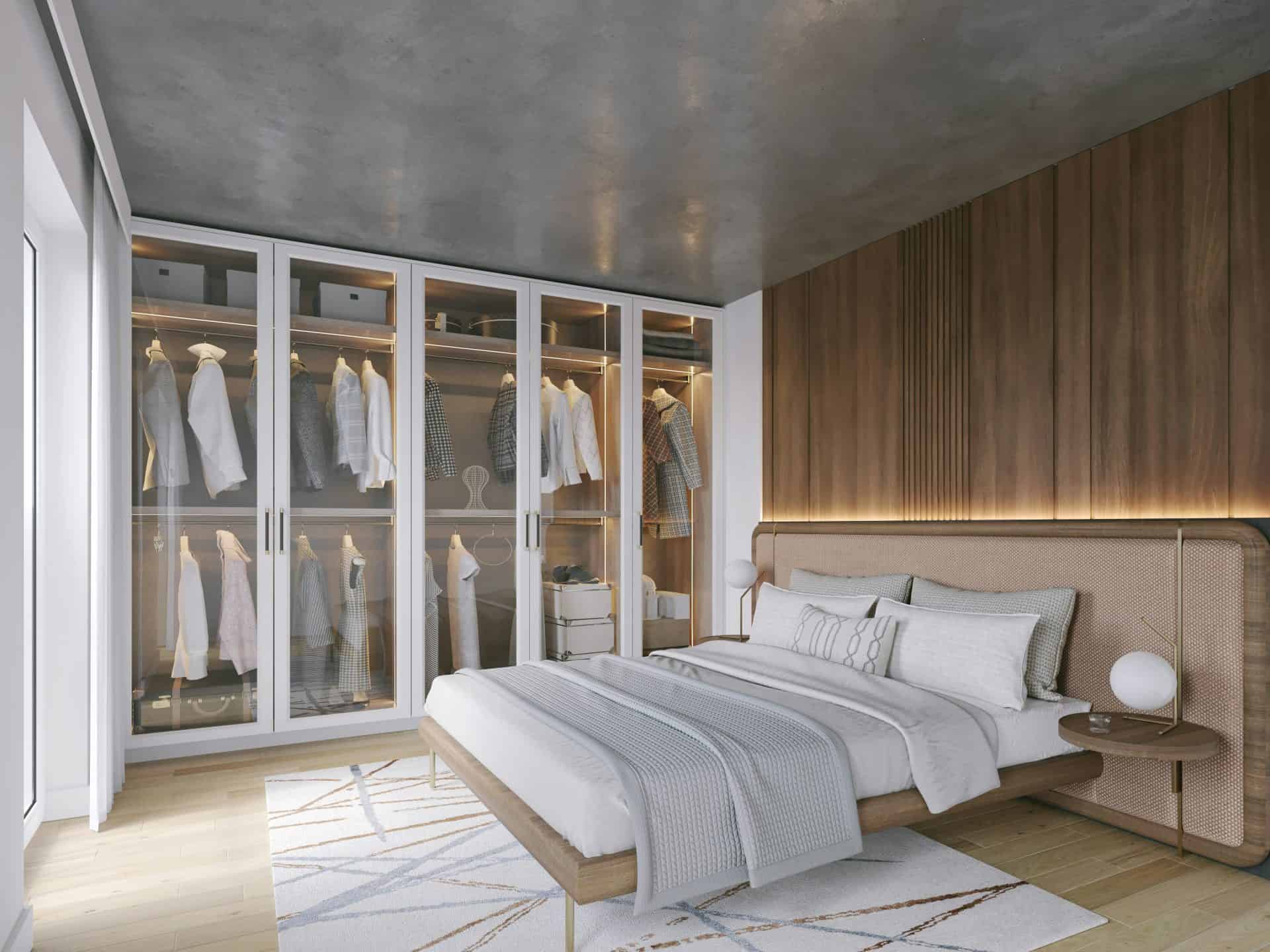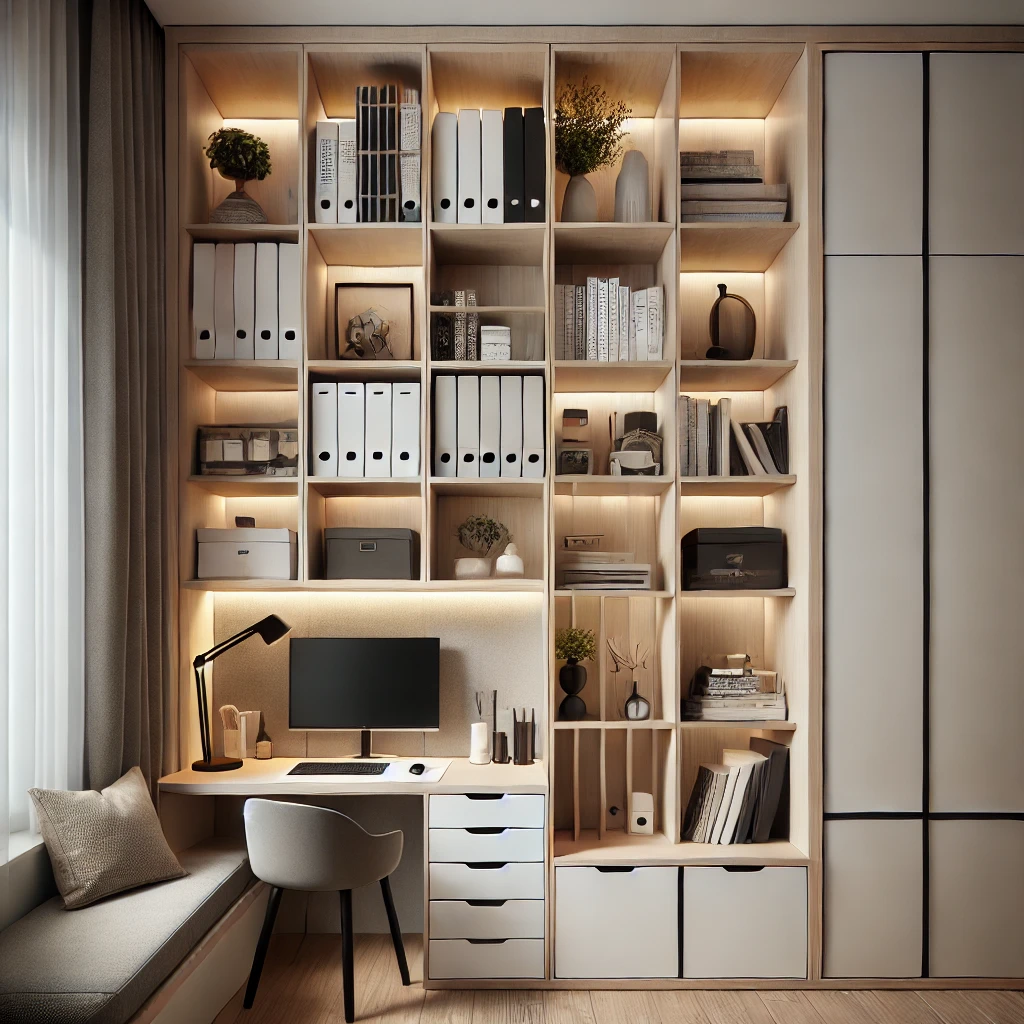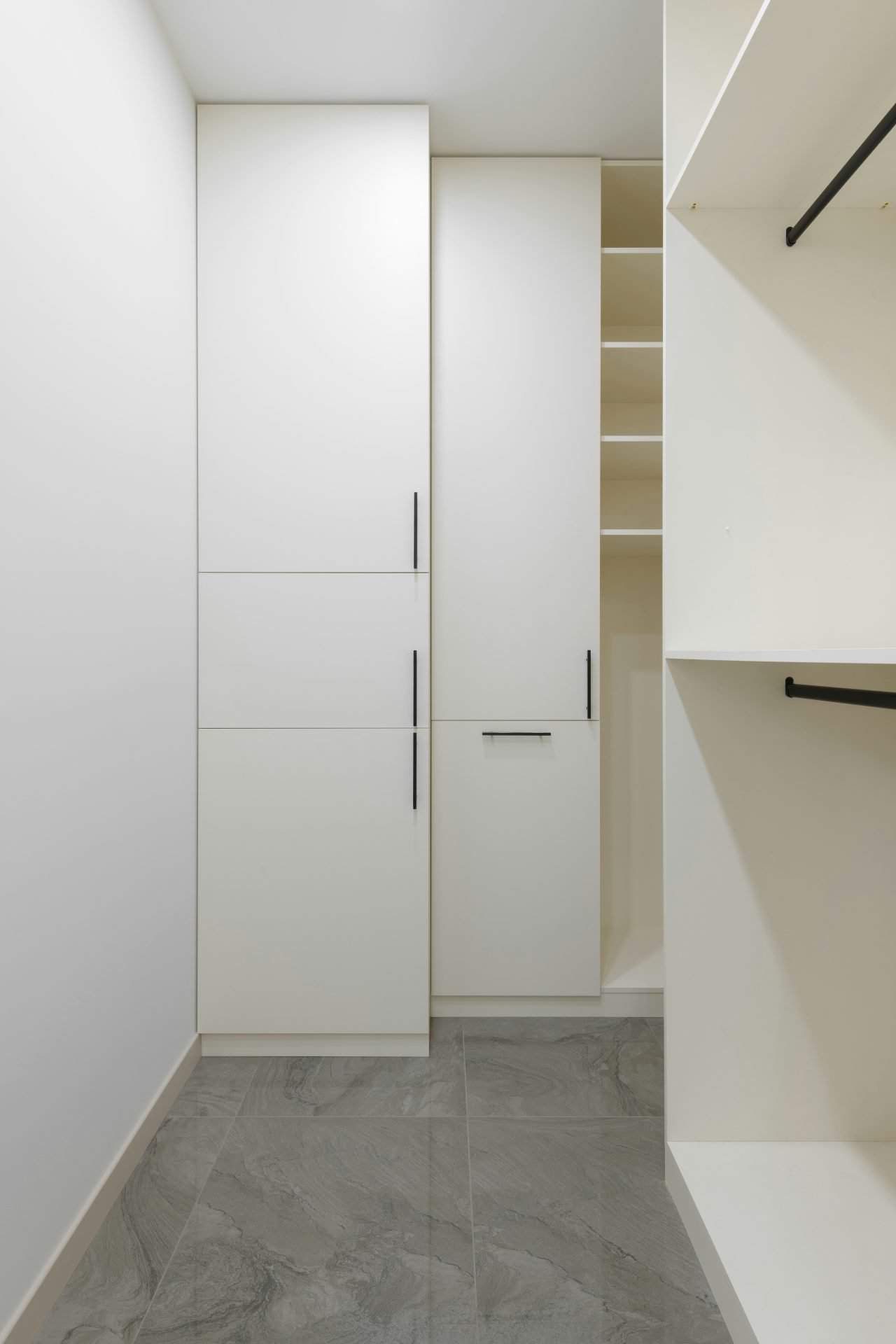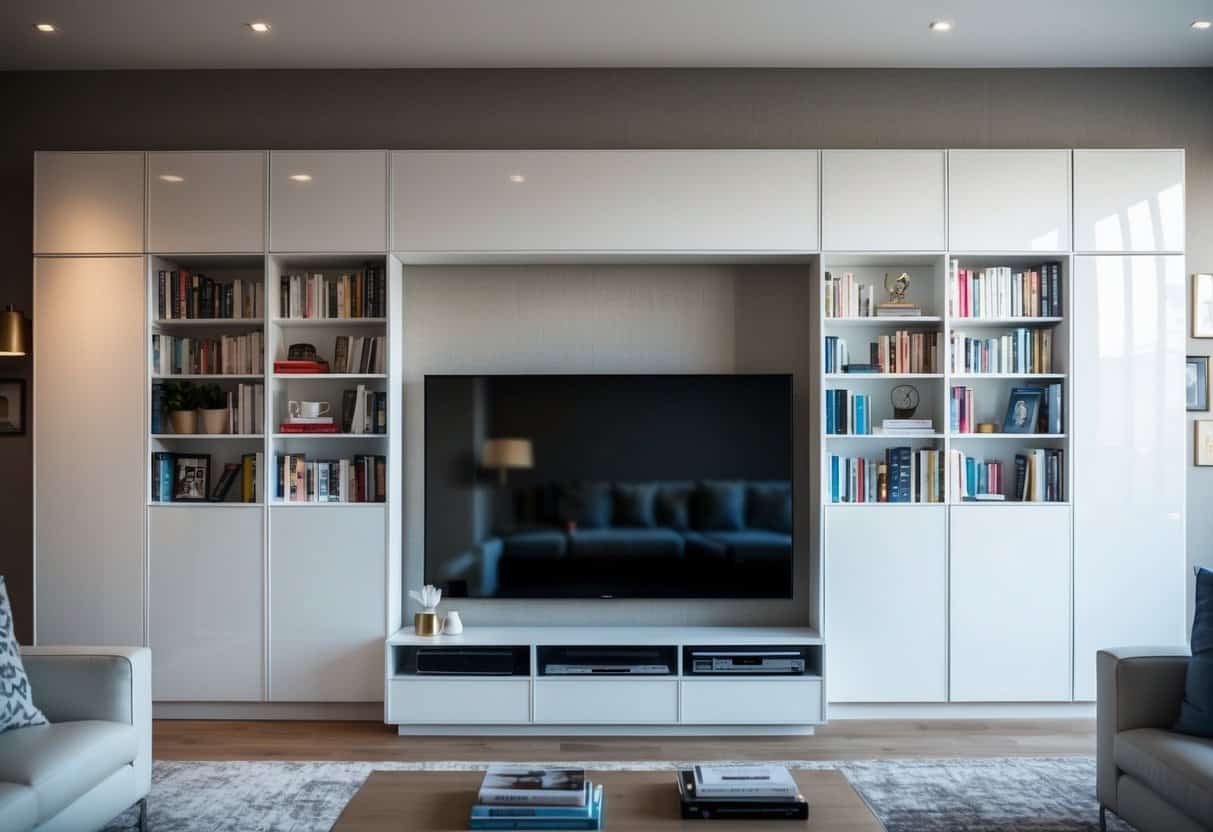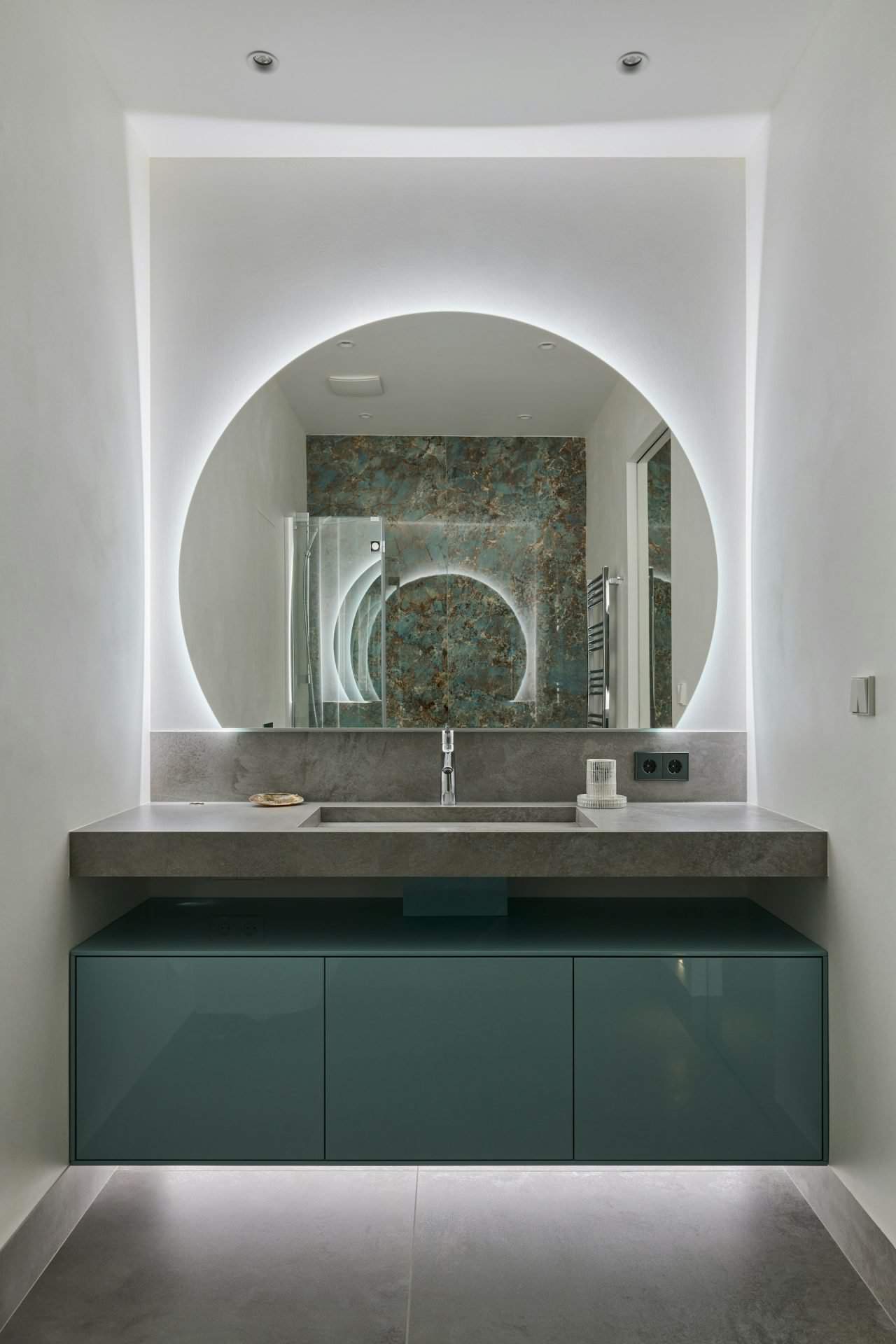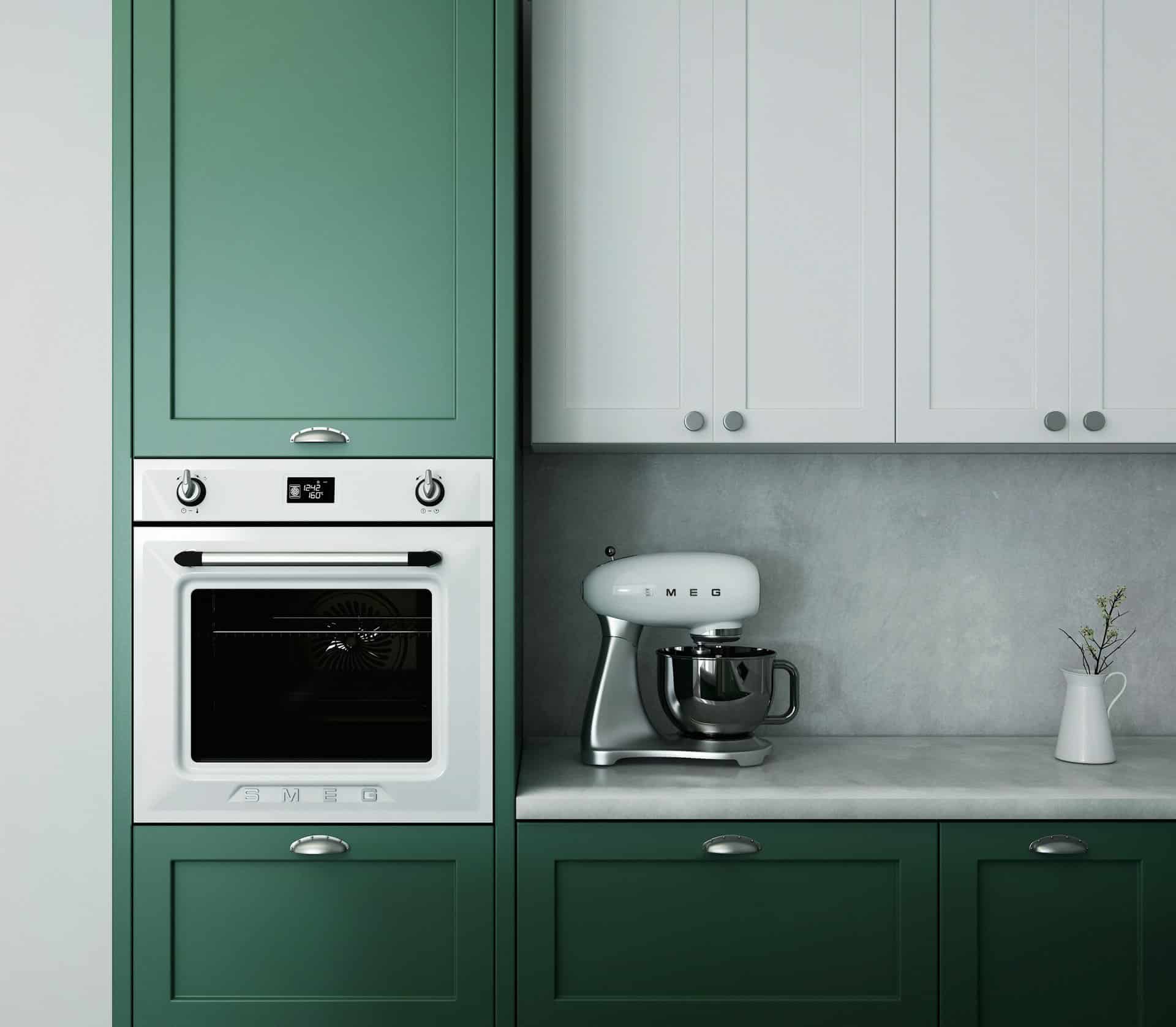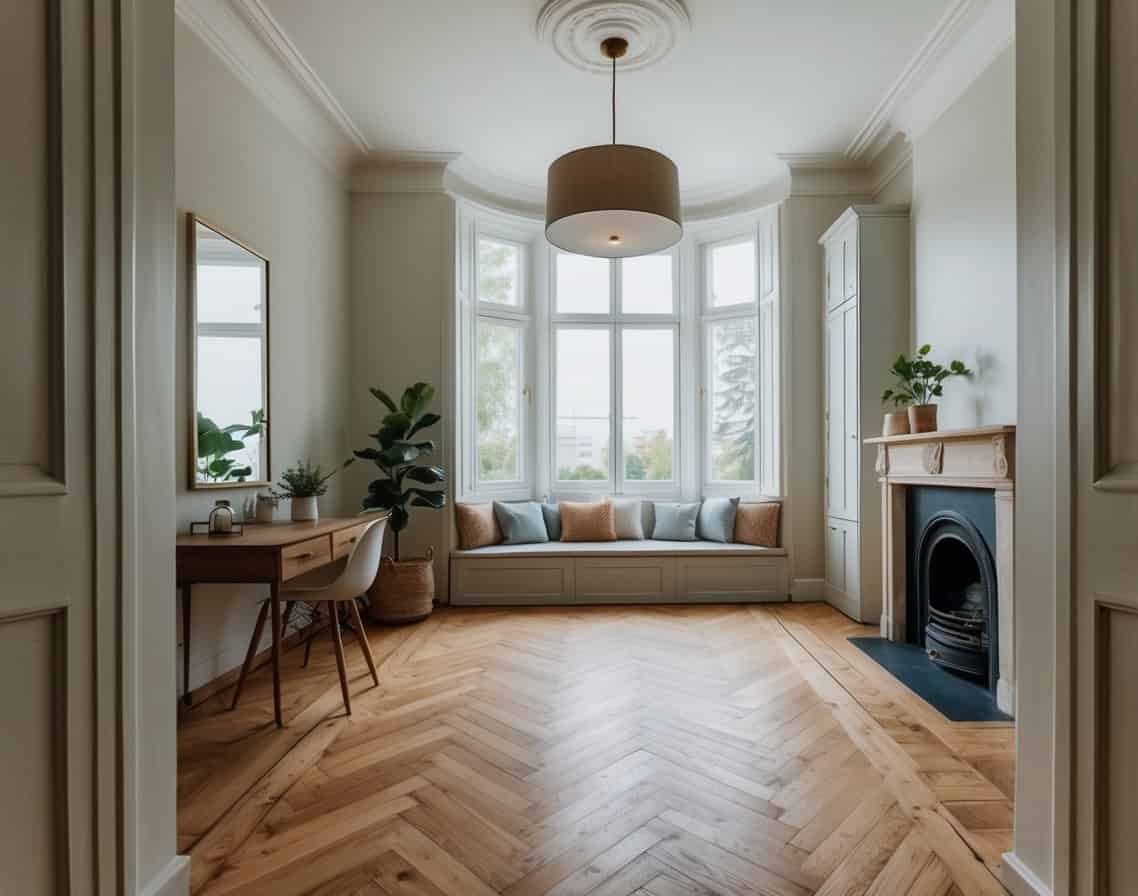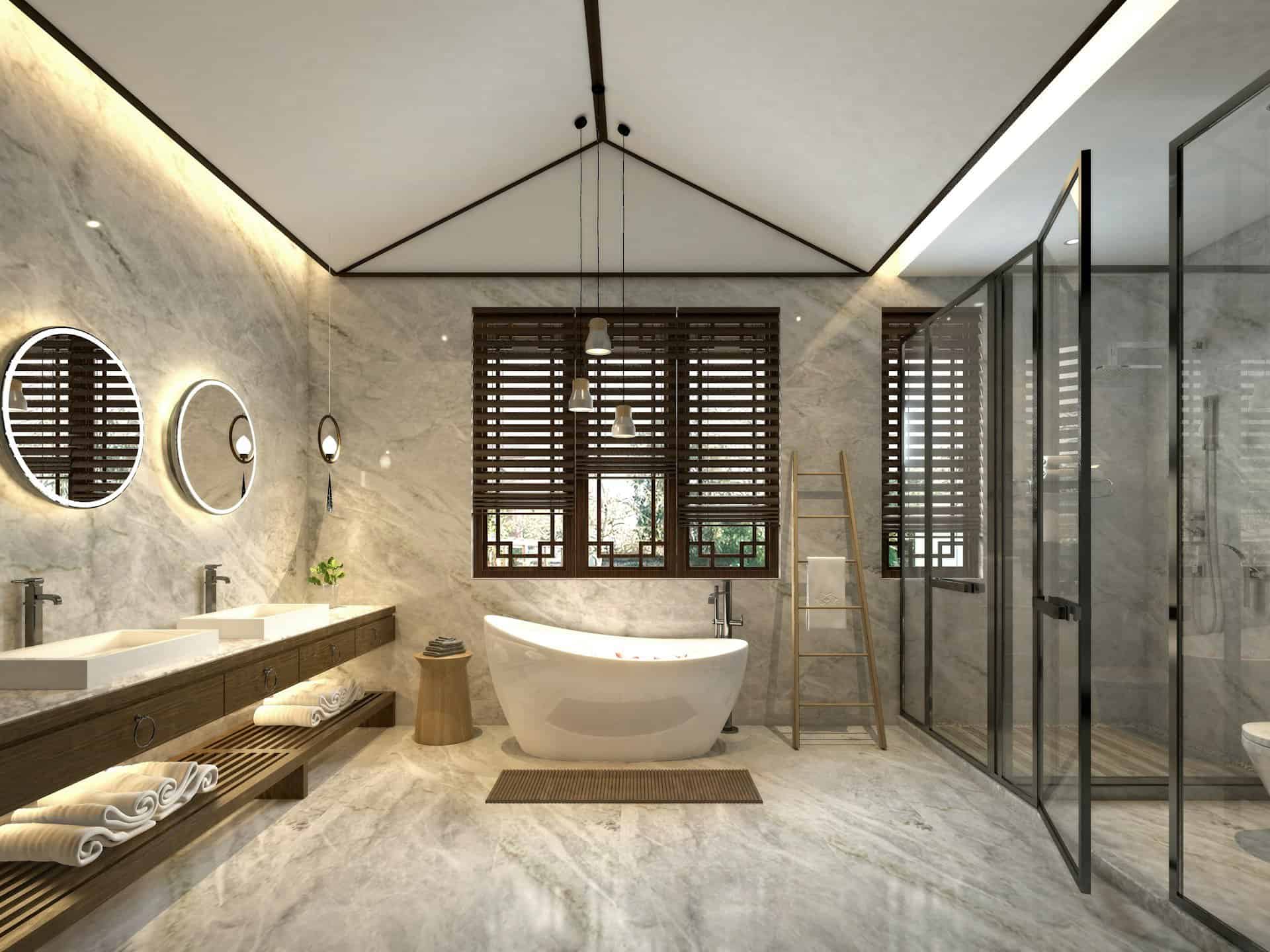Dreaming of a kitchen tailored perfectly to your needs and style? A bespoke kitchen could be the answer, but understanding the costs involved in bespoke design is crucial.
Whether it’s custom cabinets, high-end appliances, or unique design features, the total expense can vary widely.
When planning your renovation, you’ll need to consider the price of materials, the complexity of the design, and labour costs.
Generally, bespoke kitchens range from £10,000 to £75,000.
This wide range reflects the choices you make, from basic installations to luxurious finishes.
Creating your dream kitchen means balancing elegance and practicality.
You’ll need to budget for everything, including cabinets, worktops, and installation.
With careful planning, you can achieve a high-quality kitchen that showcases your style and meets your needs.
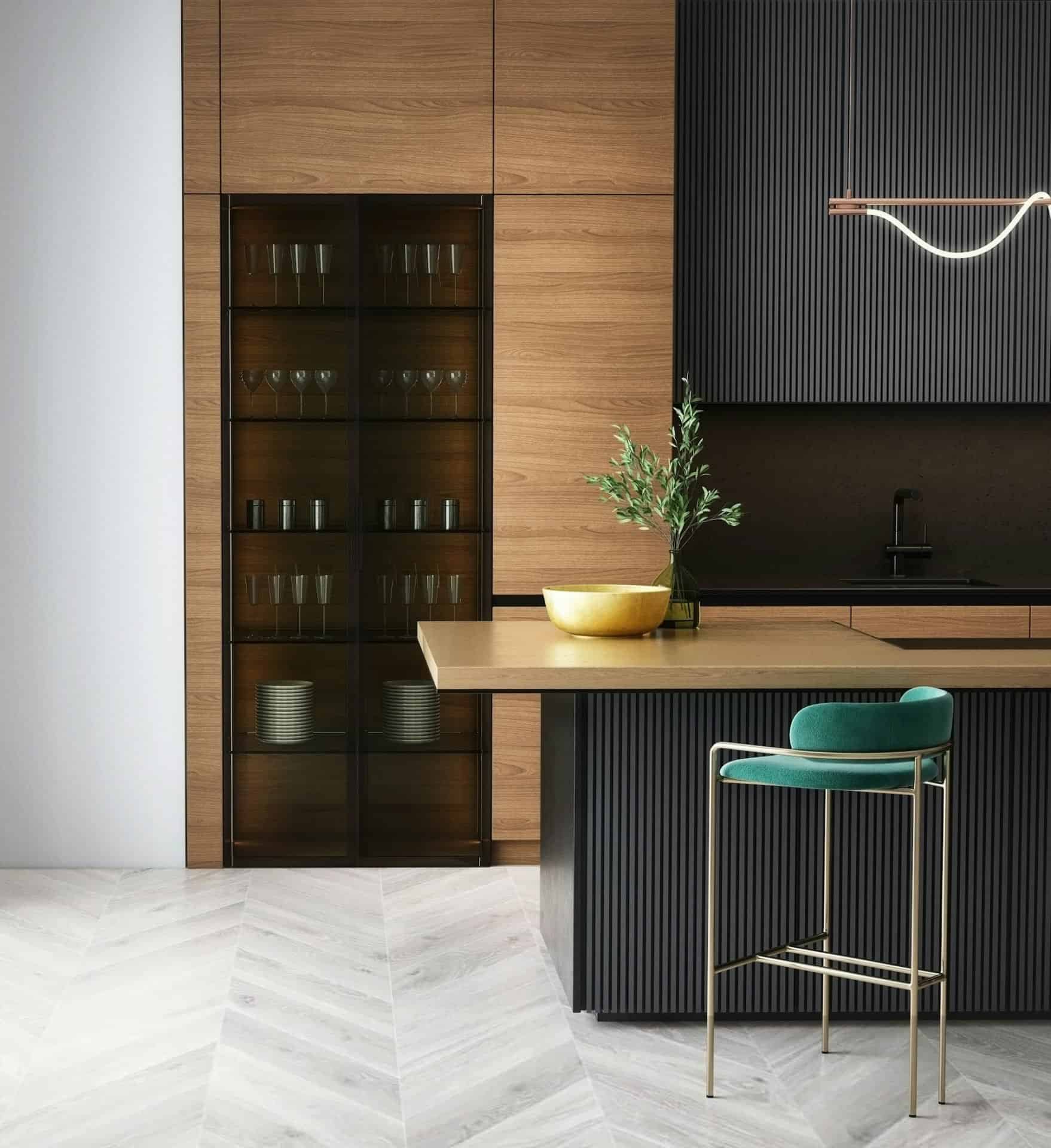
Mixing different materials and surfaces can create a lovely sleek and modern look
Key Takeaways
Bespoke kitchens typically cost between £10,000 and £75,000.
Design complexity and material quality significantly influence the price.
Budget for materials, design, labour, and installation.
Understanding Bespoke Kitchen Costs
How much does a bespoke kitchen cost? Bespoke kitchens are tailored to your specific needs in terms of functionality, design, and space. The expenses can vary widely based on factors such as materials, appliances, and the extent of customisation.
What is a Bespoke Kitchen?
A bespoke kitchen is a custom-designed kitchen tailored to an individual’s specific needs, preferences, and space. Unlike off-the-shelf options, a bespoke kitchen is crafted to reflect the homeowner’s unique style, lifestyle, and cooking habits. This personalized approach ensures that every element, from the layout to the materials used, is chosen to create a harmonious blend of form and function. The result is a beautiful and functional focal point in the home that perfectly suits the homeowner’s requirements.
Factors Influencing Cost
Materials: The type of materials chosen greatly impact the cost.
High-end options like marble or quartz are more expensive than laminate or engineered wood.
The choice of materials for cabinets, worktops, and flooring will directly affect the final price. Selecting premium materials, such as solid hardwoods and high-quality stones, can elevate the luxury and elegance of the kitchen but also significantly increase the overall cost.
Appliances: High-end appliances can escalate costs significantly. Integrated or custom-sized appliances with custom features, such as smart technology and specialized storage solutions, are often pricier.
Consider the brand and specific features you want as they will influence your expenditure.
Labour: Skilled labour is essential for bespoke kitchens. Costs for carpenters, electricians, and plumbers can add up.
The complexity of the design can increase the time and expertise needed, ultimately affecting the final price tag.
Design Service: A professional design service ensures you get a unique design that integrates perfectly with your space.
This service can come at a premium but is invaluable for a truly personalised kitchen.
Geographic Location and Its Impact on Pricing
The geographic location of your bespoke kitchen project can significantly impact the overall cost. Labour costs, material prices, and local regulations can vary greatly depending on the region, city, or town. Urban areas, especially those with high living costs, often have inflated labour rates, which can drive up the price of your bespoke kitchen. Conversely, regions with lower operating expenses may offer more competitive pricing. Additionally, local suppliers and manufacturers may charge different prices for materials and services, further affecting the overall cost. It’s essential to consider these geographic factors when budgeting for your bespoke kitchen.
Price Range and Budgeting
Bespoke kitchen prices typically range from £20,000 to £75,000. For a medium sized bespoke kitchen, costs can vary significantly based on materials, customisation, and design complexity, with a base cost starting around £25,000. For a standard, mid-range bespoke kitchen, you might spend around £25,000.
Budget Breakdown: Allocate about 50% of your budget to cabinetry, 25-35% to appliances and worktops, and 15-25% to installation and fitting.
Planning: Set a realistic budget and consider all factors such as high-end appliances, unique design, and tailored finishes.
Hidden Costs: Be mindful of additional costs like plumbing, electrics, and any unexpected modifications.
Get quotes from local tradesmen to ensure you are prepared for all expenses.
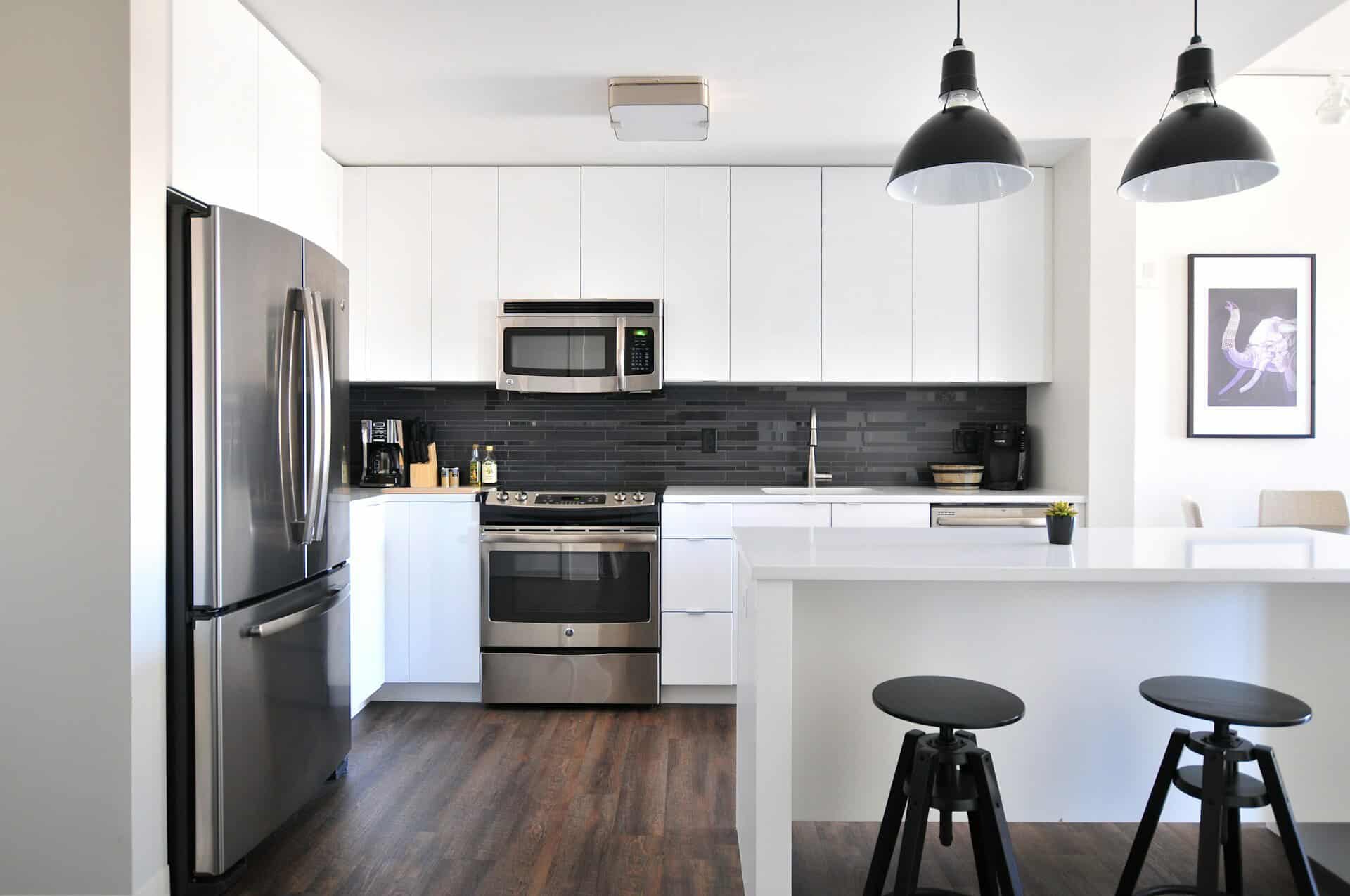
Bespoke kitchens can vary on price quite dramatically. Before going ahead, make sure you had had at least 3 quotes and understand the difference in price with materials.
Designing Your Dream Kitchen
Designing your dream kitchen involves a blend of careful planning, creativity, and attention to detail. It requires a deep understanding of the homeowner’s needs, preferences, and lifestyle. A bespoke kitchen designer works closely with the client to create a unique and functional space that meets their expectations. This collaborative process ensures that the final design not only looks stunning but also enhances the daily cooking and dining experience. From selecting the right materials to optimizing the layout, every decision is made with the homeowner’s vision in mind.
How to Plan a Bespoke Kitchen
Planning a bespoke kitchen involves several crucial steps:
Define the budget: Determine how much you are willing to spend on your bespoke kitchen.
Assess the space: Measure the kitchen area and identify any challenges or opportunities.
Identify your needs: Think about your cooking habits, storage requirements, and lifestyle.
Choose a designer: Select a reputable and experienced bespoke kitchen designer.
Discuss your vision: Share your ideas, preferences, and expectations with the designer.
Create a design concept: Work with the designer to develop a custom design that meets your needs and budget.
Select materials and finishes: Choose high-quality materials and finishes that fit your style and budget.
Plan the installation: Coordinate the installation process with the designer and contractors.
By following these steps, you can ensure that your bespoke kitchen project runs smoothly and results in a space that perfectly suits your needs and tastes.
Choosing the Right Bespoke Kitchen Designer
Choosing the right bespoke kitchen designer is crucial to creating your dream kitchen. Here are some tips to consider:
Experience: Look for designers with extensive experience in creating bespoke kitchens.
Portfolio: Review the designer’s portfolio to ensure they have a style and expertise that aligns with your vision.
Reputation: Check online reviews, testimonials, and ask for referrals to ensure the designer has a good reputation.
Communication: Choose a designer who listens to your needs and communicates effectively.
Budget: Ensure the designer is willing to work within your budget and provides transparent pricing.
Design style: Select a designer who shares your design style and aesthetic preferences.
Project management: Consider a designer who offers project management services to ensure a smooth installation process.
By following these tips, you can find the right bespoke kitchen designer to create your dream kitchen, ensuring a seamless and enjoyable experience from start to finish.
Design Elements and Material Selection
When designing a bespoke kitchen, choosing the right materials and optimising space and storage are crucial factors that will impact both functionality and aesthetics.
Choosing the Right High Quality Materials
Selecting materials is a vital step in designing your kitchen.
Your choice of worktops is significant. Quartz and granite are popular for their durability and attractive appearance. When planning your budget, consider the option of purchasing mid-range appliances to balance costs effectively.
Quartz offers a variety of colours and patterns, while granite provides a natural, classic look.
For a lower-cost option, you might consider laminate. Though less durable, it offers various designs and can mimic more expensive materials.
Solid wood is another option, providing warmth and natural beauty, especially for cabinetry.
High-quality ceramic tiles are a good choice for both splashbacks and flooring.
They are easy to clean and maintain while adding style to the kitchen.
When selecting materials, it is essential to balance cost, durability, and how well they match the overall design theme of your kitchen.
Optimising Space and Storage
Effective use of space and storage solutions enhances the usability of your kitchen.
Custom cabinetry can maximise your kitchen units’ storage potential.
Incorporate features like pull-out shelves, lazy Susans, and built-in bins to make the most of your cabinets.
Worktop space is critical. Ensure you have ample surface area for food preparation and other kitchen tasks.
Consider installing islands or breakfast bars if space allows, which provide additional storage and worktop space.
Think about adding additional storage solutions, such as tall pantry units or storage ladders to reach high cabinets.
Optimising these elements can make your bespoke kitchen functional and comfortable to work in daily.
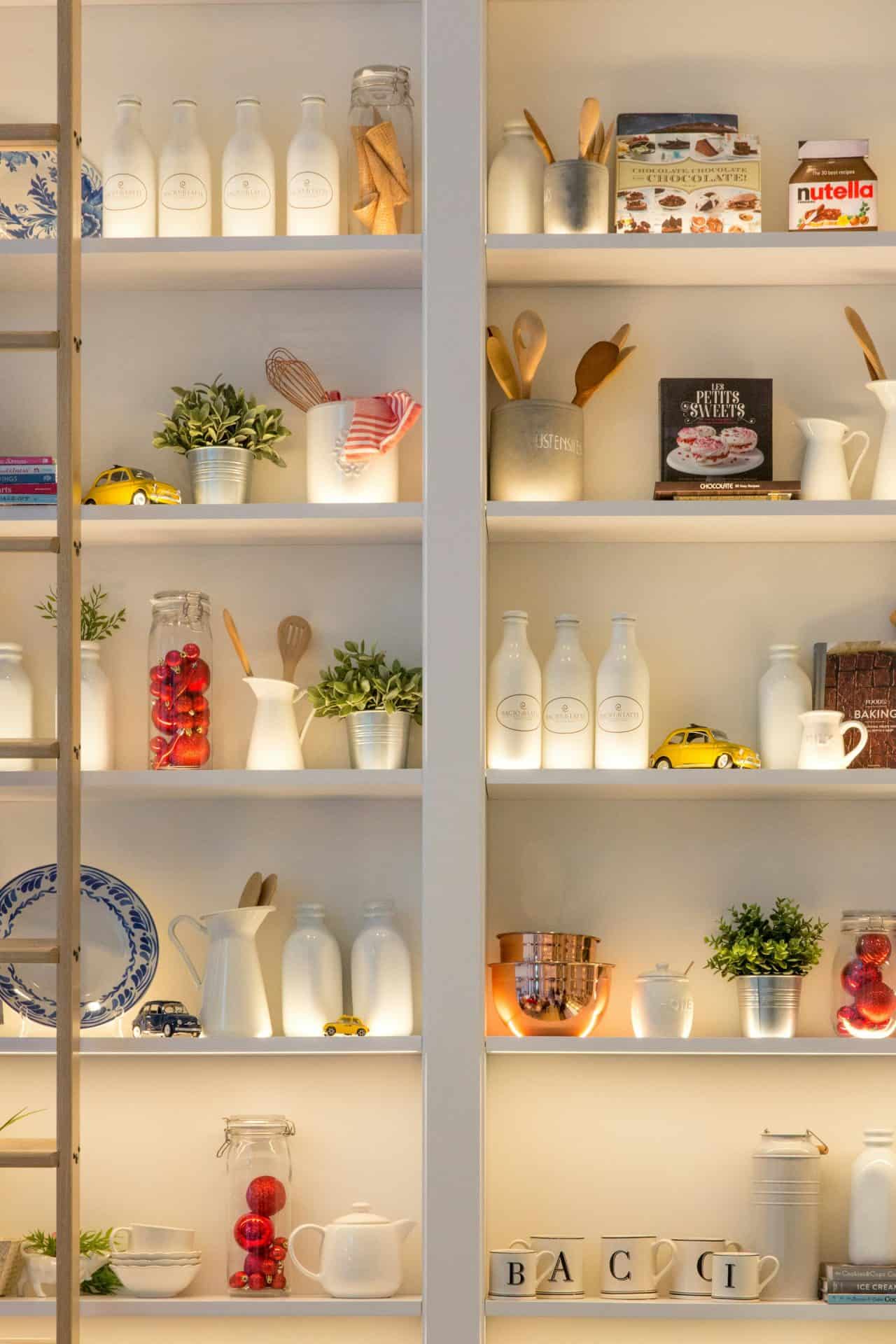
bespoke pantry cupboards or larders are a great way to add extra storage.
Installation and Labour
Installing a bespoke kitchen involves several steps, from initial planning and design to the final fitting of cabinets and appliances. Labour costs play a significant role, influenced by the complexity of the design and the expertise required.
Installation Process
The installation process typically begins with a consultation. You might work with a kitchen designer or an interior designer to finalise your plans.
Precise measurements of your kitchen space are critical to ensure all components fit perfectly.
Next, the project moves to the joinery and carpentry stage. This involves crafting custom cabinets and other structures.
This step can take time, especially for intricate designs.
After this, kitchen fitters will start the assembly and fitting process, which includes installing cabinets, countertops, and appliances.
Attention to detail is crucial here to ensure everything is aligned and functioning correctly.
Professional project management is essential throughout the installation to coordinate between different trades such as plumbers and electricians.
This ensures the process runs smoothly and on schedule.
Labour Costs and Tradespeople
Labour costs for a bespoke kitchen can vary widely. Enhanced installation, including custom cuts and painting, can cost between £5,000 and £8,000.
These costs depend on the kitchen size and the complexity of the design.
You will likely need to hire various tradespeople, including carpenters, joiners, electricians, and plumbers.
Kitchen fitters usually charge by the day or project.
It’s wise to budget around 20% of your total kitchen renovation cost for labour.
This ensures high-quality work and reduces the risk of mistakes.
Using skilled tradespeople ensures a seamless finish and potentially saves money in the long term by avoiding costly errors.
Always check credentials and reviews before hiring to ensure you are getting reliable professionals.
Additional Considerations
When planning a bespoke kitchen, several additional aspects can impact both the cost and the functionality of your space. These include the choice of appliances, possible extended projects, and the options available from popular retailers.
Appliances and Technology
In a bespoke kitchen, appliances and technology can make a big difference in usability and efficiency.
High-end dishwashers, fridge freezers, and smart ovens can add significantly to your budget.
Modern kitchen appliances often come with advanced features like touchscreens, smart connectivity, and energy-efficient options.
While these features improve convenience, they also increase costs.
Investing in quality appliances typically ensures longevity and better performance.
Upgrading to smart home integrations or selecting energy-efficient models may lead to higher initial costs but can result in long-term savings on utility bills.
Extended Projects and Services
Bespoke kitchen projects may extend beyond just cabinets and appliances.
You could consider kitchen extensions to create more space, which can be particularly appealing in older homes.
A standard kitchen extension cost averages around £1,975 per m², rising to £2,475 per m² in London.
Additionally, professional fees for architects and designers can add about 10-15% of the total project cost.
You might also want to budget for kitchen islands or custom-built worktops, which add both aesthetic appeal and functionality but can further elevate the overall cost.
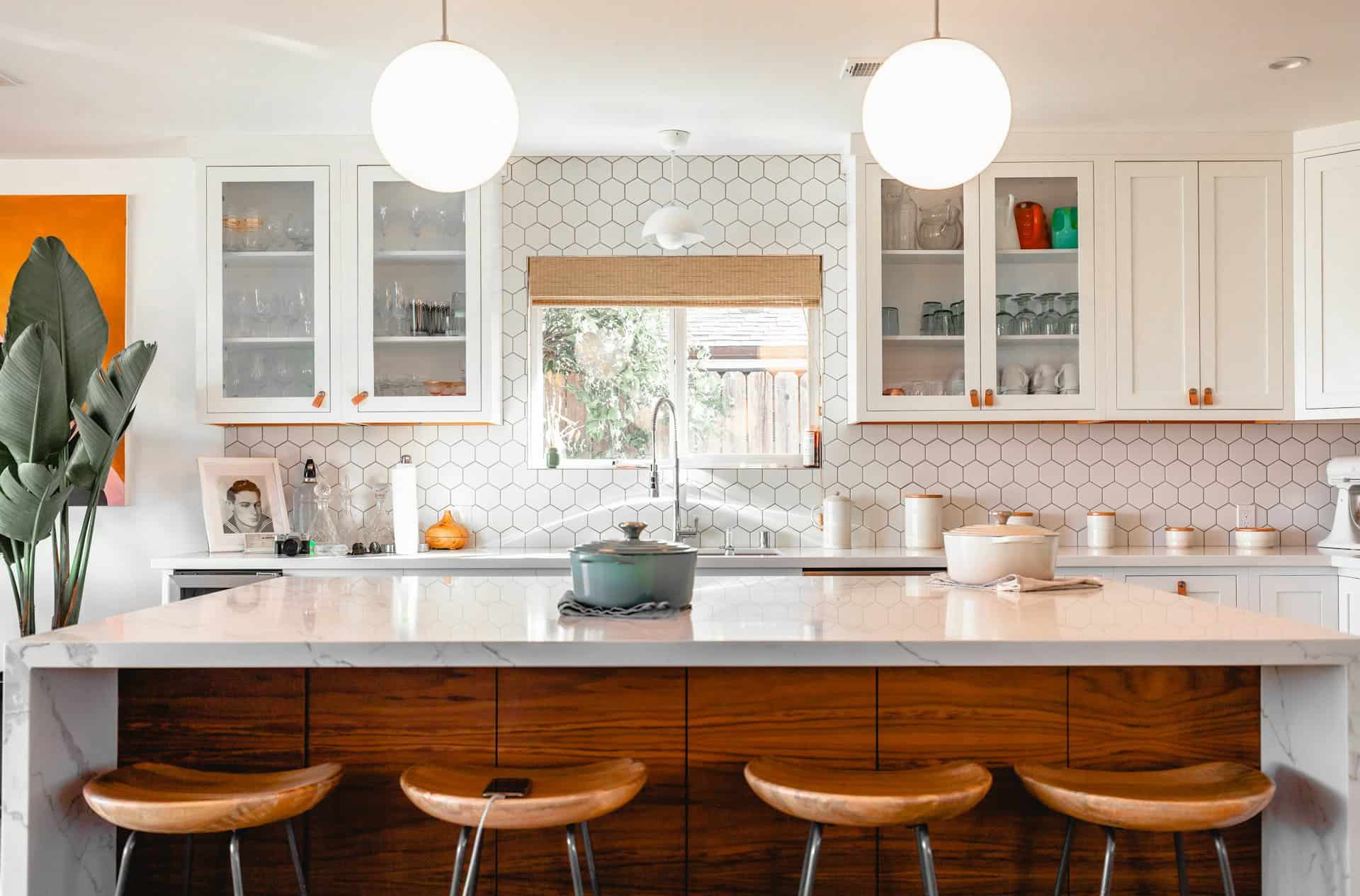
kitchen islands not only give you more worktop space, they are aesthetically pleasing too.
Popular Retailers and Cost Examples
When planning your bespoke kitchen, examining popular retailers can help.
Companies like IKEA and B&Q offer a variety of options, though custom solutions might need to be tailored further.
For instance, Checkatrade notes that bespoke kitchens typically range between £20,000 and £75,000.
At the high end, businesses like NG Bespoke could have prices that exceed £100,000, particularly for detailed or intricate designs.
Frequently Asked Questions
When considering a bespoke kitchen, several factors such as cabinetry, property value, and renovation costs come into play. Here are answers to some common questions.
What is the price range for new kitchen cabinetry?
New kitchen cabinetry for a bespoke kitchen typically ranges from £10,000 to £25,000, depending on materials and design complexity.
Can the installation of a bespoke kitchen increase property value?
Yes, installing a bespoke kitchen can increase property value by making the home more appealing to potential buyers, often leading to a higher resale price.
What are the average costs associated with handmade kitchen units?
Handmade kitchen units can average around £15,000 to £30,000. The cost varies with design details and the quality of craftsmanship.
What financial outlay should one expect for a complete luxury kitchen renovation?
A complete luxury kitchen renovation can cost between £35,000 and £75,000, including high-end materials, custom cabinetry, and installation.
How much would it cost to refurbish a kitchen with a modern facelift?
Refurbishing a kitchen with a modern facelift generally costs between £10,000 and £25,000. This includes updating fixtures, appliances, and surfaces.
What is the typical expenditure for fitting a kitchen from a supplier like Howdens?
Fitting a kitchen from a supplier like Howdens can cost between £5,000 and £20,000.
The cost varies depending on the kitchen design and the extent of customisation.

